When it comes to historical fiction, few themes resonate as deeply as the exploration of family sagas. These narratives, which examine the lives of vastly diverse people from different cultures and various time periods, nonetheless share a common thread: each provides an intimate look into individuals’ lives, unraveling the intricate web of relationships between people, their secrets, shame and triumphs, and the enduring familial trauma that tends to permeate throughout generations.
The stories on this list not only span decades but reveal the way personal and collective histories intertwine, offering a complicated and raw representation of the human experience. From the echoes of ancestral suffering to the vast transformation brought about by societal upheaval, these historical fiction sagas invite us to acknowledge the enduring impact of the past on our present and future.
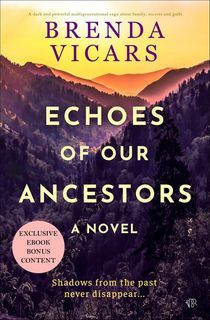
Echoes of Our Ancestors
This poignant multi-generational saga discusses the ways that trauma can be passed down from one generation to the next and how pain will linger until an individual courageously decides to face difficult truths.
Philip Richards evades sorrow by drinking his guilt away. He feels as though he doesn’t exert much control over his life, especially after failing to protect his sister from their abusive grandfather. Forced to face his family again when his father passes away, Philip uncovers a manuscript that recounts the Civil War relationship between his ancestor, Russell, and Fever, the enslaved woman who became his bride.
Meanwhile, Philip meets a woman named Edith, who he is instantly drawn to. As Philip discovers more about his family’s troubling history, new allegations intermingle with past wrongs, threatening to keep him stuck in the vicious cycle he desperately yearns to break free from.
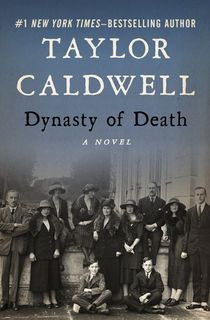
Dynasty of Death
Spanning from 1837 to the beginning of World War I, this impressive historical fiction novel, which is the first in a trilogy, follows two families and the contentious relationship between brothers who aim to grow an unimposing ammunition factory into a lucrative business—a legacy that will forever change the nature of war.
Motivated and eager to find immense wealth in America, Joseph Barbour immigrates with his family to a rural village in Pennsylvania, far from their home in England. His wife and son Martin’s unhappiness and unease from their move troubles Joseph, but what worries the family far more is the older son Ernest’s proclivity for violence. Ernest’s ruthless ambition becomes apparent after Joseph creates a gunpowder firm, partnering with Armand Bouchard, a man who lives down the road with his wife and three sons.
An essential part of the business, Ernest becomes accustomed to getting what he wants and finds the beautiful Amy Drumhill to be next on his list, despite his brother’s mutual feelings toward her. This spark ignites a battle between brothers that explores the catastrophic effects of power and greed on familial bonds through complex characters and enthralling prose.
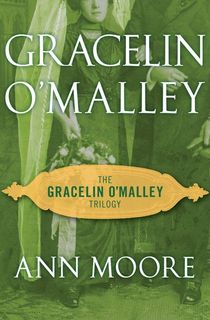
Gracelin O'Malley
The first of this trilogy, set during the potato famine, one of Ireland’s most tumultuous periods, centers around a young woman named Gracelin O'Malley. She has experienced great misfortune from an early age, beginning with the death of her mother at only six years old. When she becomes a teenager, Gracelin is burdened with the task of marrying the son of a wealthy English landowner to ease her family’s financial worry. However, she soon realizes that this comes at a steep cost, as she is forced to bear the brunt of her husband’s cruel nature.
When the desperately hungry arrive at their doorstep, she takes it upon herself, despite her husband’s wishes, to offer them food. She shares the same mindset as the rebels who call themselves the Young Irelanders—a group that is committed to freeing their homeland of English rule, which her cherished brother Sean has joined, and is led by his friend Morgan McDonagh. Gracelin O'Malley is a stunning Irish saga that shares the story of a remarkably tenacious woman readers will not soon forget.
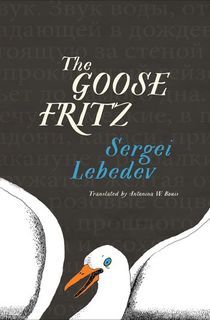
The Goose Fritz
This novel takes readers through Russian history by following one family of German heritage living in Russia whose story is slowly uncovered by a remaining descendent, a young man named Kirill, who delves into archives, wanders cemeteries across Europe and searches for witnesses to access a deeper understanding of his family’s past and consequently his identity.
Kirill finds that his ancestor, Balthasar Schwerdt, immigrated in the 1830s to Russia, where he found himself in the court of Catherine the Great while practicing alternative medicine and subsequently was taken captive by a nobleman whose job was to find individuals to entertain the empress. With its beautifully written prose, The Goose Fritz investigates how political identities shape our personal identities and depicts the struggle to find belonging while coping with transgenerational trauma.
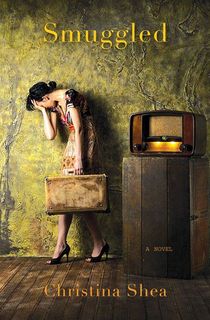
Smuggled
Éva Farkas is dead. At least that is what the five-year-old Jewish girl is told by her aunt and uncle after they agree to raise her in Romania. Concealed within a flour sack and forced to flee her home of Hungary from the cruelty of the Nazis, Éva Farkas emerges as Anca Balaj. Now she must face unimaginable pressure to assimilate into a new culture by learning an unfamiliar language, residing in a house without her parents, and knowing that if she fails, it may cost her and her family’s lives under Nicolae Ceausescu’s Romanian Communist Party.
However, when the Iron Curtain finally falls, Éva returns to her motherland as a woman ready to reclaim the identity stolen from her as a child. This emotional story explores themes of perseverance amid adversity, exemplified by the woman in this intimate and transformative tale.
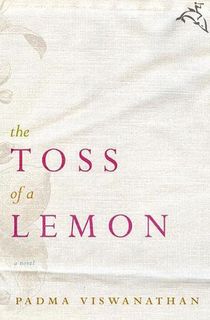
The Toss of a Lemon
This magnificent 600-page novel captures the life of a Tamil Brahmin woman from age 10 when she participates in an arranged marriage, through her teenage years when she becomes a young widow, to her later-in-life years in which she navigates relationships with her children when her son begins questioning the long-held beliefs that she has followed dutifully throughout her life.
It’s 1896 in South India when Sivakami marries Hanumarathnam, a young village healer from a respectable family capable of predicting horoscopes. Despite Hanumarathnam revealing that he is destined to die in his first decade of marriage, the couple falls in love throughout their happy years together. When first their daughter is born, followed by their son, Hanumarathnam asks their midwife to toss a lemon from the moment of each of their births, which will allow him to perceive their astrological future. Their son’s horoscope verifies the horrible news they’ve been dreading—Hanumarathnam’s death is approaching.
When that solemn day arrives, 18-year-old Sivakami mourns and adheres to her culture’s traditions concerning grief. But when her brothers begin making irresponsible decisions for her children, she boldly decides to return to her home and raise them, alongside her servant Muchami.
Amid the social and political transformation of early 20th-century India, Sivakami begins experiencing changes within her own family as tension builds when valued traditions are rejected by some members of the family and honored by others. This moving multigenerational family saga examines India’s caste system while depicting how generational differences can impact loved ones’ relationships.
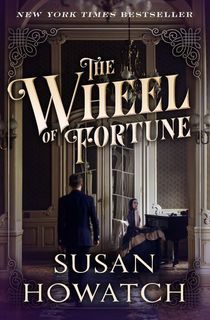
The Wheel of Fortune
Readers looking for a hefty 1,000-page tale filled with rivalry, revenge and romance should pick up this novel based on a true story. Robert Godwin wishes to restore his family’s estate of Oxmoon in South Wales to its former glory, but his unhealthy fixations lead to long-lasting family conflict. Told through various perspectives of the Godwin family throughout generations, readers witness how each descendent grapples with their turbulent family legacy and the burden of ambition that plagues them. Scandalous love affairs, jealous competitors and murder await those who wish to read this sweeping saga that explores the cyclical nature of history and the enduring consequences of selfish actions.
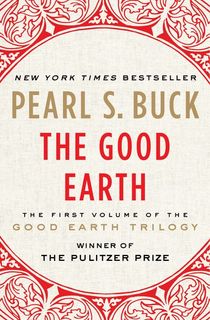
The Good Earth
First published in 1931, this Pulitzer Prize-winning novel was revolutionary for its time for providing realistic, complex portrayals of Chinese characters rather than previous novels that failed to garner critical acclaim. Set in the 1920s, the first book of the trilogy follows the life of a hardworking Chinese farmer named Wang Lung, who lives with his widowed father.
The story begins with Wang Lung fetching the woman who will become his wife, a dutiful young woman named O-lan who was sold into slavery by her poverty-stricken family at 10 years old and has worked for the nobles of the House of Hwang ever since. O-lan will now take on the roles of wife and mother while fulfilling her responsibilities to keep the household running alongside Wang Lung.
This novel presents the countless hardships, heartbreak and sacrifices a family faces in hopes of eventually climbing the socioeconomic ladder and masterfully depicts humans’ connection to the land by comparing the cycles of nature to the progression of one man’s life.
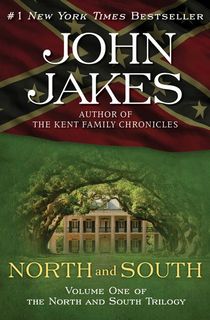
North and South
A story of two men whose friendship is threatened by the massive divide of the American Civil War is explored in this first book of the acclaimed North and South trilogy. Orry Main is from South Carolina, while George Hazard is from Pennsylvania, but while training at the United States Military Academy at West Point, they form a powerful brotherhood that is further strengthened when they fight together in the Mexican-American War.
However, once the Civil War begins destroying national unity, their bond is put to the ultimate test as their conflicting perspectives challenge the respect and love they’ve grown to have for one another alongside the loyalties they maintain toward their respective hometowns and families. North and South reflects upon the possibility of reconciliation despite deep-rooted differences.
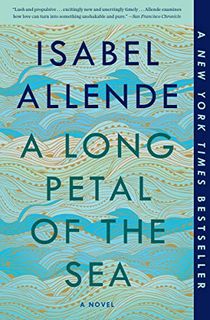
A Long Petal of the Sea: A Novel
Among those forced to flee from Spain to France after General Franco and his Fascists succeeded in overthrowing the government are Roser, a pregnant young widow, and an army doctor named Victor Dalmau—the brother of the young woman’s beloved who has recently passed away. The two hastily marry to ensure their spot on the refugee ship, the SS Winnipeg, that will be heading to Chile and will allow them a chance at a new life.
Throughout their tribulations, while navigating life in a new country despite dreaming of returning to their old home, their forced proximity and companionship slowly transform into genuine adoration. It is both a powerful love story and a narrative of hope honoring those who have experienced displacement due to political unrest.
This post is sponsored by Open Road Media. Thank you for supporting our partners, who make it possible for The Archive to continue publishing the history stories you love.
Featured image: Juho Luomala / Unsplash

